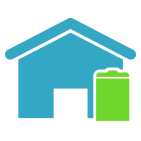How to Separate Trash Efficiently
Posted on 10/11/2025
In today's environmentally conscious world, efficiently separating trash has become a necessity. Proper waste separation not only streamlines recycling processes but also aids in reducing the environmental footprint. Adopting effective measures to segregate waste not only conserves natural resources but also curtails pollution by minimizing landfill use. This article will guide you through the steps required to efficiently separate trash, ensuring an eco-friendly lifestyle.
Understanding Different Types of Waste
To separate trash efficiently, it's crucial to understand the various categories of waste:
1. Recyclable Waste: Includes items like paper, cardboard, glass, metals, and certain plastics.
2. Organic Waste: Comprises food scraps, yard waste, and other biodegradable materials.
3. Hazardous Waste: Consists of items such as batteries, paints, chemicals, and electronics.
4. General Waste: Items that don't fit into the above categories and cannot be recycled or composted.

Setting Up a Home Recycling Station
A well-organized recycling station is key to efficient waste separation. Follow these steps:
1. Designate Bins: Assign separate bins for each waste category. Use color coding or labels to avoid confusion.
2. Location: Place the recycling station in an accessible area, such as the kitchen, to encourage regular use.
3. Educate Household Members: Ensure everyone understands the importance of waste separation and the specifics of which items go into which bin.
How to Sort Recyclable Waste
Recyclable waste needs to be sorted correctly to ensure it can be processed efficiently:
1. Paper and Cardboard: Ensure these items are clean and dry. Flatten boxes to save space.
2. Glass: Separate by color if required in your area. Rinse containers to remove food residue.
3. Metals: Clean aluminum and steel cans before placing them in the bin.
4. Plastics: Check the recycling symbols on plastic items. Not all plastics are recyclable in every area.
Composting Organic Waste
Composting is an excellent way to handle organic waste:
1. Indoor Composting Bin: For smaller spaces, an indoor bin or a worm composter can be effective.
2. Large Compost Pile: For those with a yard, a larger compost pile may be more suitable.
3. Acceptable Items: Fruit and vegetable scraps, coffee grounds, eggshells, and yard waste are perfect for composting. Avoid meat, dairy, and oily foods.
Handling Hazardous Waste
Properly managing hazardous waste is vital for safety and environmental protection:
1. Separate Storage: Keep hazardous waste in a clearly marked, separate location.
2. Local Disposal Programs: Many communities have designated collection points or events for hazardous waste.
3. Proper Disposal: Follow local regulations for the disposal of hazardous materials to ensure safety.
Reducing General Waste
The less general waste you produce, the better:
1. Minimize Single-Use Products: Opt for reusable items whenever possible.
2. Pack Smart: Use sustainable packaging options.
3. Repurpose and Reuse: Think creatively about how to repurpose items before discarding them.
Pros and Cons of Efficient Trash Separation
Pros:
1. Environmental Protection: Reduces pollution and conserves natural resources.
2. Economic Benefits: Saves money on waste disposal and creates jobs in the recycling industry.
3. Health Improvement: Proper disposal of hazardous waste minimizes health risks.
Cons:
1. Time Consuming: Initial setup and continuous sorting can be time-consuming.
2. Requires Space: A dedicated space is needed for multiple bins and composting.
3. Learning Curve: Understanding and remembering proper sorting methods can be challenging initially.
Tips for Successful Waste Separation
1. Stay Informed: Keep updated with local recycling guidelines, as they can vary.
2. Use Signage: Label bins with clear instructions to ensure correct usage.
3. Educate and Involve Everyone: Make sure all household members are committed to the process.
4. Regular Maintenance: Periodically check and clean bins to prevent contamination.

Key Takeaways
1. Effective waste separation helps protect the environment by reducing landfill waste and conserving resources.
2. Understanding waste categories and setting up a well-organized recycling station are fundamental to efficient trash separation.
3. Properly managing organic, recyclable, and hazardous waste is crucial in maintaining environmental and personal health.
Conclusion
Efficient waste separation is a pivotal step towards a sustainable future. While it may demand effort and commitment, the environmental and economic benefits are substantial. By understanding different types of waste, setting up proper systems, and staying informed, you can successfully contribute to a healthier planet. Embrace these practices, educate those around you, and make a significant impact on reducing your environmental footprint.










